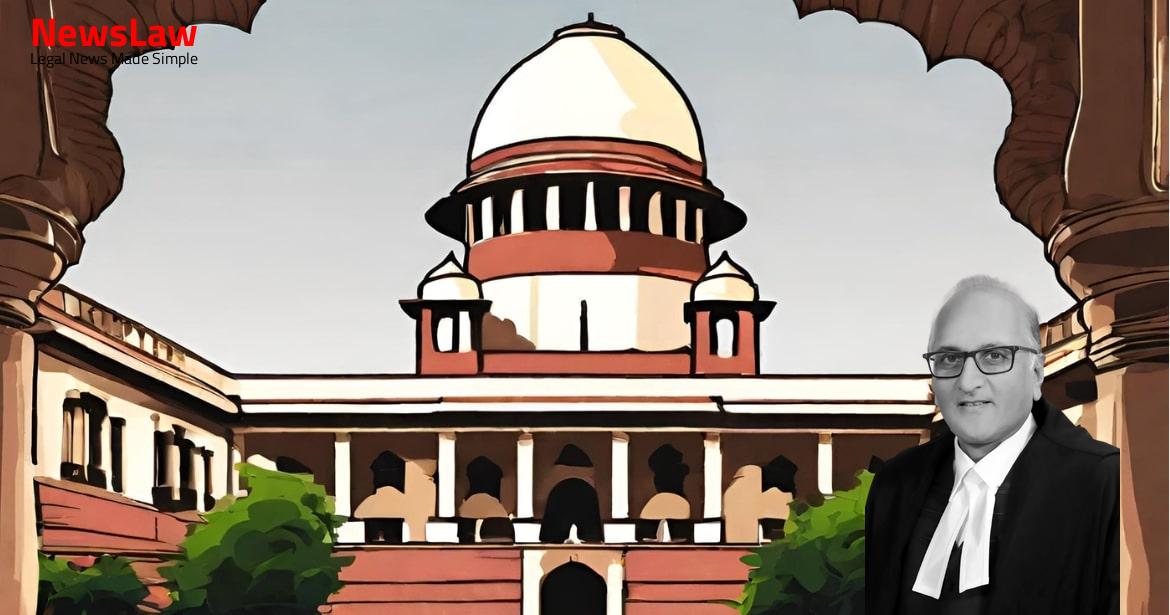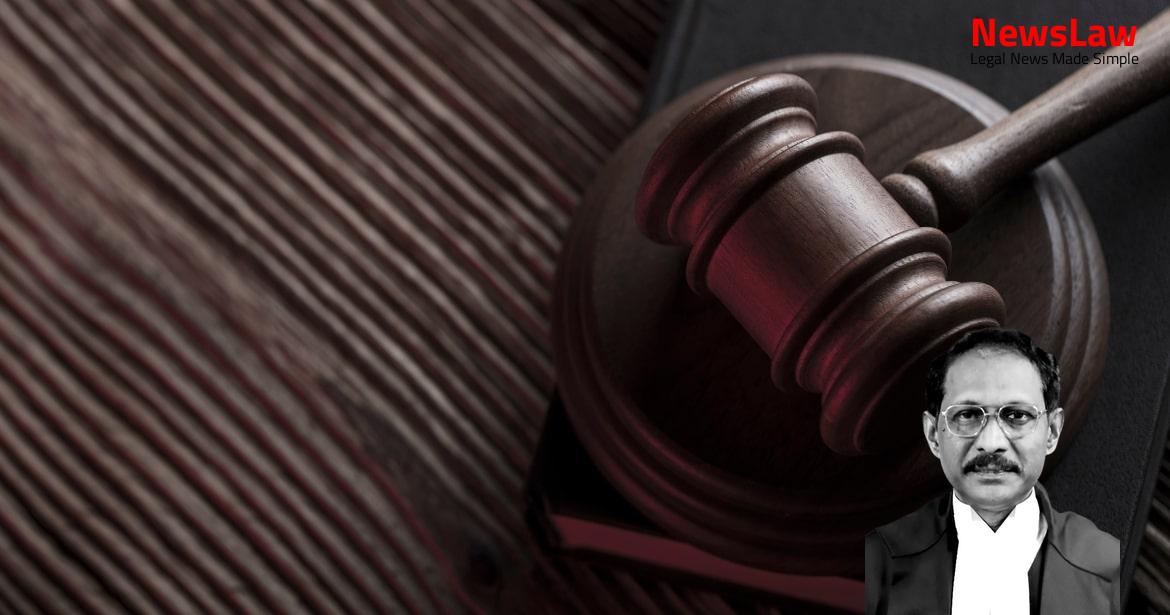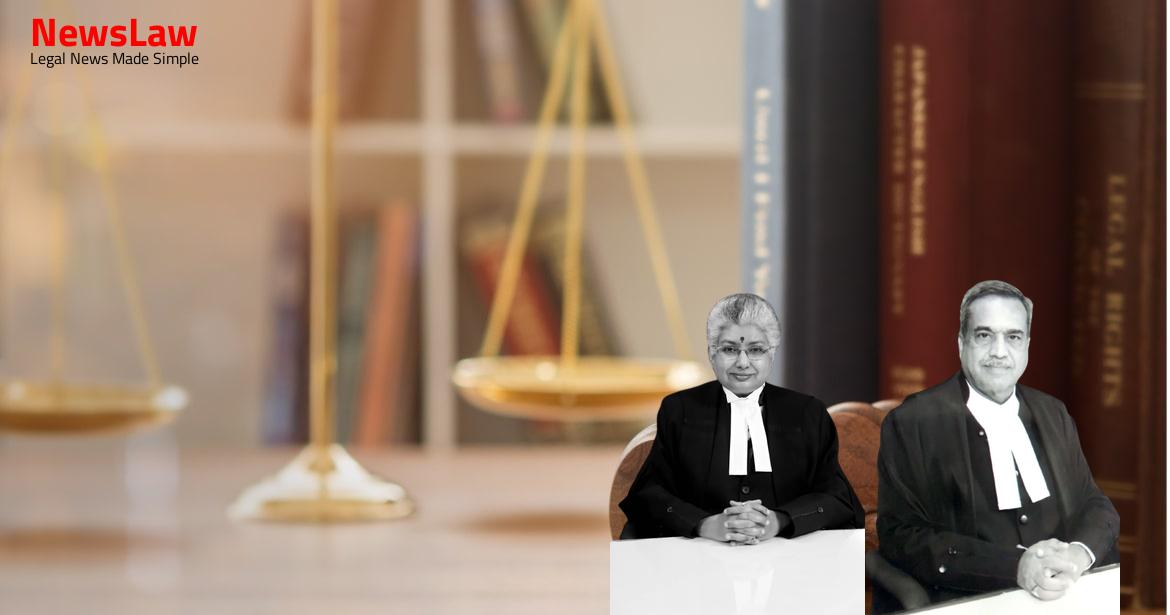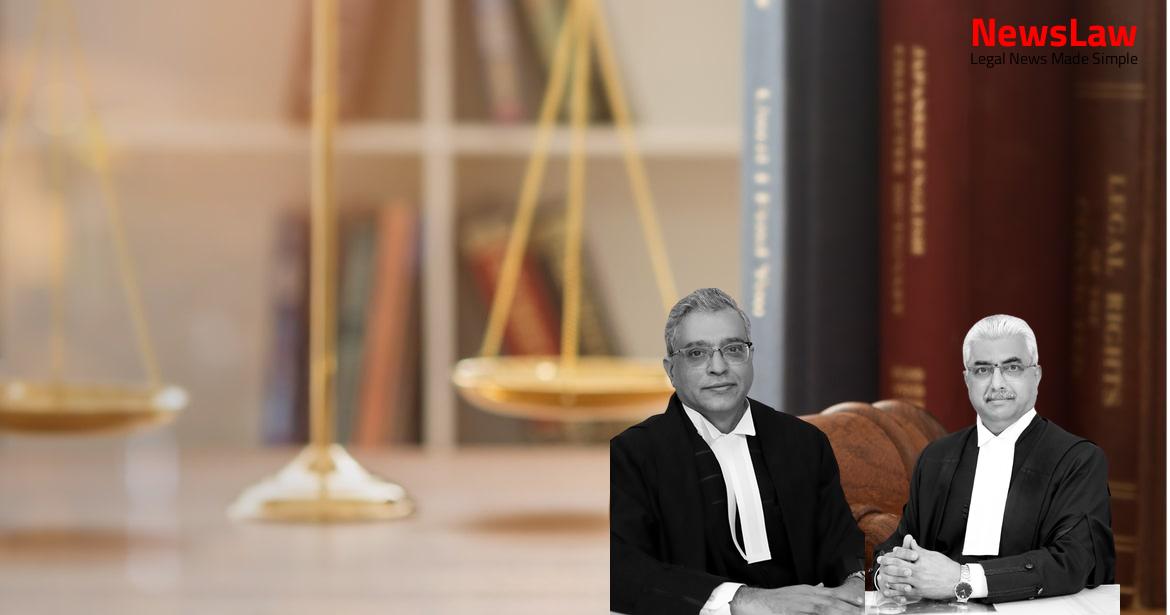Delve into the complexities of counter-claim filing in civil litigation as seen in the recent Supreme Court of India case. This case sheds light on the balance between procedural justice and substantive justice, impacting the rights of parties involved in the dispute.
Facts
- The trial court rejected objections regarding filing of counter-claim after the written statement and framing of issues.
- Petitioner (defendant No.2) filed a written statement on 2.12.2008 and counter-claim on 15.3.2009 in the same suit filed by the Plaintiff for specific performance.
- The matter was referred to a three-Judge Bench by a Division Bench of the court.
- The High Court was challenged in Civil Revision No 253 of 2009
- The High Court allowed the challenge and quashed the counter-claim
Arguments
- Order VIII Rule 6A of the CPC aims to avoid multiplicity of proceedings and save time of the Courts.
- There is no specific statutory bar or embargo imposed on the Court’s jurisdiction to entertain a counter-claim.
- The cause of action in the counter-claim must arise before or after the filing of the suit but before the defendant has delivered his defense.
- Rules of procedure should not lead to failure of justice, as per judgments in Salem Advocate Bar Association and Jai Jai Ram Manohar Lal cases.
- Court may exercise discretion in not permitting a counter-claim if it leads to protracting the trial and causing delay in deciding the suit.
- The learned Senior counsel for the respondent argued that the counter-claim must be a part of the written statement as per the language of the statute and the Order.
- Strengthening the argument, it was stated that the cause of action for a counter-claim must arise before the filing of the written statement, indicating the need for it to be included in the initial statement.
- Reference was made to Order VIII Rule 6A of the CPC, highlighting the requirement for the defendant’s claim to be included in the written statement, further supporting the stance that the counter-claim should be a part of the initial pleading.
Also Read: CRPF Act: Validity of Rule 27 for Compulsory Retirement – Case of Head Constable vs. CRPF
Analysis
- Procedural justice must align with substantive justice to ensure an effective and participatory judicial system.
- Counter-claim, treated as a plaint, must comply with the Limitation Act, 1963 to avoid time-barred suits under the guise of counter-claims.
- Order VIII Rule 6 allows the defendant to claim set-off legally recoverable from the plaintiff in a money recovery suit, with limitations.
- Order VIII Rule 6A mandates restrictions on the accrual of the cause of action for a counter-claim.
- Counter-claims cannot be filed arbitrarily post-written statement, must balance substantive justice with procedural efficiency.
- Courts must exercise discretion judiciously when allowing counter-claims to ensure fairness, avoid prejudice, and prevent undue delays.
- The right to file counter-claims should be balanced with the principles of speedy justice, ensuring no detriment to the opposing party.
- Trial courts must carefully consider all circumstances before admitting a counter-claim and cannot follow a rigid formula.
- Counter-claims should be related to the cause of action, whether accrued before or after filing the suit, maintaining relevance.
- Order VIII Rule 6-G stipulates that rules for written statements by defendants apply to those filed in response to counter-claims.
- Courts should adopt a balanced approach in considering reasons for counter-claims to serve the ends of justice.
- Discretion must be maintained in determining when a counter-claim can be filed, without rigid time constraints.
- A defendant in a suit has the right to set up a counter-claim against the plaintiff’s claim.
- The counter-claim can be in relation to a cause of action accruing to the defendant against the plaintiff, before or after the suit was filed.
- The counter-claim cannot exceed the pecuniary limits of the court’s jurisdiction.
- The counter-claim will have the same effect as a cross-suit, allowing the Court to make a final judgment on both the original claim and the counter-claim.
- The written statement for the counter-claim functions similarly to a plaint in a cross-suit.
- The judgment in respect of the original claim and the counter-claim is pronounced by the Court.
- The lien of the pleader in respect of costs payable to him under the decree is not affected by the set-off.
- In Bollepanda Poonacha Case, the counter-claim was rejected as the cause of action arose after filing the written statement.
- Legislature does not provide explicit time limitation for filing a counter-claim.
- Mahendra Kumar Case clarified that Rule 6A(1) of Order VIII of the CPC does not bar filing a counter-claim after filing the written statement.
- Limitation for filing a counter-claim falls under Article 113 of the Limitation Act, 1963.
- Rule 6A in Order VIII of the CPC aims to prevent multiplicity of proceedings and ensure finality in dispute resolution.
- Applicability of limitation period for filing a counter-claim was discussed in Jag Mohan Chawla Case and Shanti Rani Das Dewanjee Case.
- Vijay Prakash Jarath Case allowed the filing of a counter-claim 2½ years after framing of issues.
- Bollepanda Poonacha Case discouraged belated filing of counter-claims due to the serious harm caused by such delay.
- Order VIII Rule 6A of the CPC does not restrict filing a counter-claim after the written statement.
- The restriction is related to the accrual of the cause of action, not the timing of filing the counter-claim.
- Defendants do not have an absolute right to file a counter-claim with substantive delay, regardless of the limitation period.
- Even if the limitation period has not elapsed, filing a counter-claim with substantive delay is not absolute.
Also Read: DAMEPL vs. DMRC: Curative Petition and Arbitral Award Restoration
Decision
- The court must consider the outer limit for filing the counter-claim until the issues are framed.
- The Instant Special Leave Petition should be placed before a suitable Bench with permission from the Chief Justice of India to evaluate the case on its merits.
Case Title: ASHOK KUMAR KALRA Vs. WING CDR SURENDRA AGNIHOTRI
Case Number: SLP(C) No.-023599 / 2018



